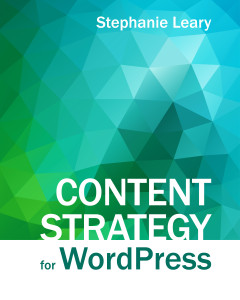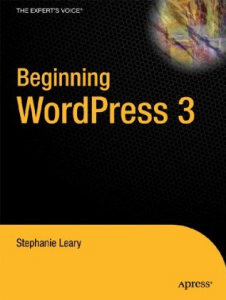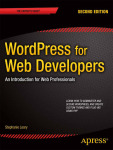Tonight (and about once a month from now on), I’ll be at the College Station WordPress Meetup. We’re going to build a site from scratch as a demo for newbies. The second, smaller conference room will be available for advanced developers to chat. Locals, I hope to see you there!
Next month, I’ll be in Florida for WPCampus, the first WordPress conference specifically for higher education. Here’s the summary of my talk:
Getting to WordPress
Getting started with WordPress is easy — unless you got started a long time ago in some other CMS, or Dreamweaver or even (shudder) FrontPage. But you and WordPress can still have a happy relationship despite your baggage! In this session, I’ll show you how to import almost anything into WordPress. I’ll share examples from real projects for each step of the import process:
- Setting up your ideal content model in WordPress
- Cleaning up your import for best results
- Importing from any other CMS, database, or HTML files
- Converting old content to custom post types, taxonomies, and modular fields
- Auditing and cleaning up content in WordPress
- Processes for long-term content strategy and maintenance
In August, I’ll be part of the online Content Strategy Summit with a new talk that isn’t just about WordPress:
Content First in Action
We know that a content-first approach to design is a best practice, but knowing is only half the battle. We’re accustomed to our legacy workflows–and so are our clients. For years, we’ve trained clients to expect designs first, prototypes later, and writing last of all.
Win clients over to your new workflow by showing them what’s in it for them: not just a better user experience for their readers, but a better authoring experience for the content editors.
With a CMS that lets you modify the admin interface, you can make not only the design but the CMS itself fit the content. When coupled with a responsive design workflow, setting up the model first helps clients think more concretely about:
- modular content
- prioritizing chunks for mobile, search, and archived contexts
- user roles and access
- editorial UX
This content-first approach lets you design the CMS to fit the organization’s content model and workflow. You can:
- dogfood throughout the prototyping and design processes
- spot areas of confusion early
- change the admin interface
- add inline help
- plan documentation to be a backup or a last resort
I’ve done a number of these virtual conferences with Environments for Humans, and they’re always outstanding.
And finally, in October I’ll be back at HighEdWeb for the first time since my son was born. I’m so excited to be returning with a new half-day workshop:
WordPress for the 99%
Tame the wild web that’s grown over decades of decentralized web services by providing a central self-service solution that’s prettier, cheaper, and (as far as the customer is concerned) maintenance-free — without hiring a small army. Texas A&M and Berkeley are maintaining WordPress networks of thousands of sites with web teams of two to five, and you can do it, too.
WordPress is popular because it’s easy for users to grasp and easy for developers to extend. Why not take advantage of that to provide branded websites for your campus constituents? Sure, there are a few groups who need a custom site and have the money to pay for it–but what about everyone else? A little structured content here, some inline help there, and you have a one-size-fits-most solution for virtually every small website on your campus. Go beyond the student blog network! WordPress is for everybody: faculty, staff… even that events coordinator who needs a website by 5 because she’s opening up registration in the morning and what do you mean, is the content written?
Using case studies from Texas A&M University and The University of California at Berkeley, I’ll demonstrate how to set up common content models, templates, and workflows for:
- Departments
- Research teams
- Conferences & symposia
- Committees
I’ll also talk about integrating the 1% into these WordPress networks without sacrificing security, branding, and accountability.
The workshop will include specific code examples and plugin recommendations from the case study projects.




Leave a Reply